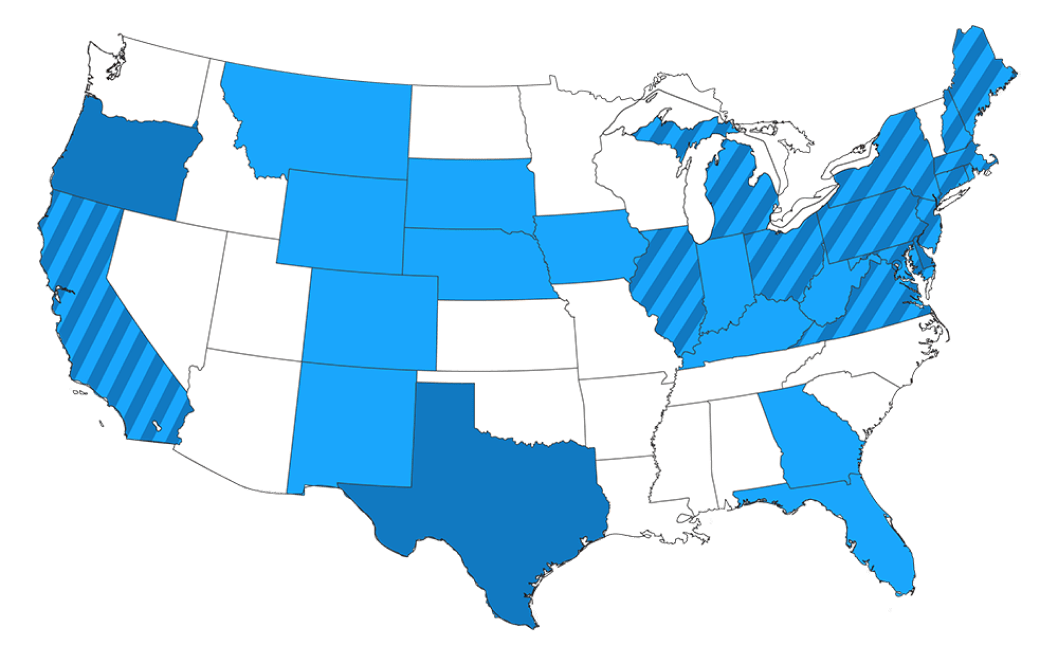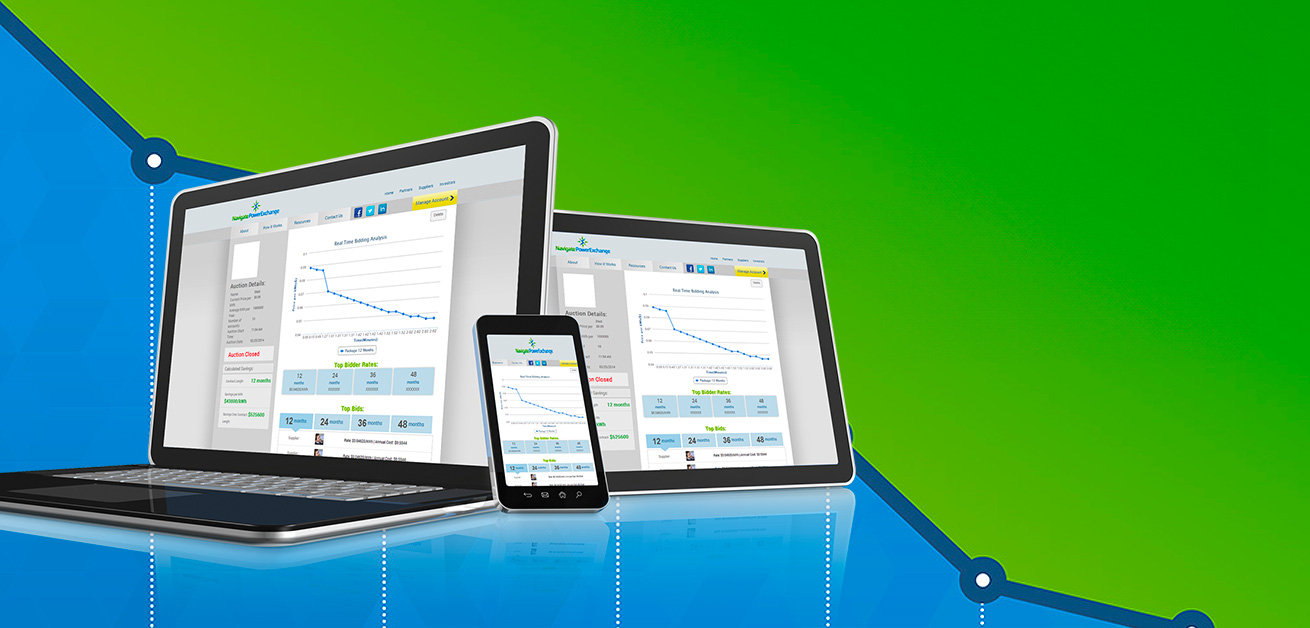what is energy Procurement?
What we provide
We are leaders in Energy Procurement – a complex name for a simple concept. As a top energy procurement company, we find the best energy contracts for your company’s specific needs, based on our industry experience and access to leading suppliers. We then source a contract offering better value for your money and lower operating expenses.
REGULATED AND DEREGULATED ENERGY MARKET
In the US, the difference between regulated and deregulated energy markets vary depending on the state. Deregulated states allow energy suppliers to compete in offering energy services to consumers.
Regulated Gas & Electricity markets
deregulated Electricity markets
deregulated gas markets
deregulated gas & electricity markets


With Navigate Power, suppliers compete to win the business, which provides the following benefits:
SUPPLIERS ONLY
Without a broker, limitations can include:
- Only One Supplier
- Fewer Pricing Options
- Limited Term Choices
- Opaque Process
Case Study
- Overview
- Opportunity
- Solution
Liebovich Steel &
Aluminum Company has
been producing quality
metal products for over
60 years.
Located on 50 acres in Rockford, Illinois,
Liebovich’s 500,000 square foot service
center employs over 300 qualified and
highly motivated individuals.
Liebovich’s state-of-the-art facility is fully
equipped to provide high-definition plasma
cutting, precision plate and sheet
shearing, flame cutting, grinding stress
relieving and saw cutting.
Liebovich experienced
dramatic swings in
electricity and natural
costs due to weather
and market volatility.
Their energy supplier hadn’t contacted them
in over 18 moths, leaving Liebovich with
questions about their energy options.
Navigate Power helped execute a
36-month, multi-hedge fixed rate
electricity, allowing Liebovich to
take advantage of immediate
savings and long-term budget
certainty in an effort to reduce
marketing volatility.
This on the heels of a full review of Liebovich’s usage history and energy savings agreements. Natural gas is a major input for Liebovich’s process. Navigate Power helped time the natural gas market, and secure a 16-month fixed rate natural gas agreement, delivering immediate savings and budget certainty.
Results
Increased reporting & market updates
$31,900 in
annual savings
$95,700 in
term savings
Budget
Certainty
Other Energy Services

Navigate Exchange
Our internal procurement platform that gives our commercial energy consultants access to the nation’s leading electric and natural gas suppliers.
Learn More
Energy Efficiency
Comprehensive energy solutions that benefit the unique needs of our diverse clients from Solar, EV Charging, and Battery Storage to CHP, HVAC and Lighting.
Learn More
Utility Bill & Audit
Refunds
We audit utility bills to identify billing discrepancies and opportunities for bill refunds.
Learn More